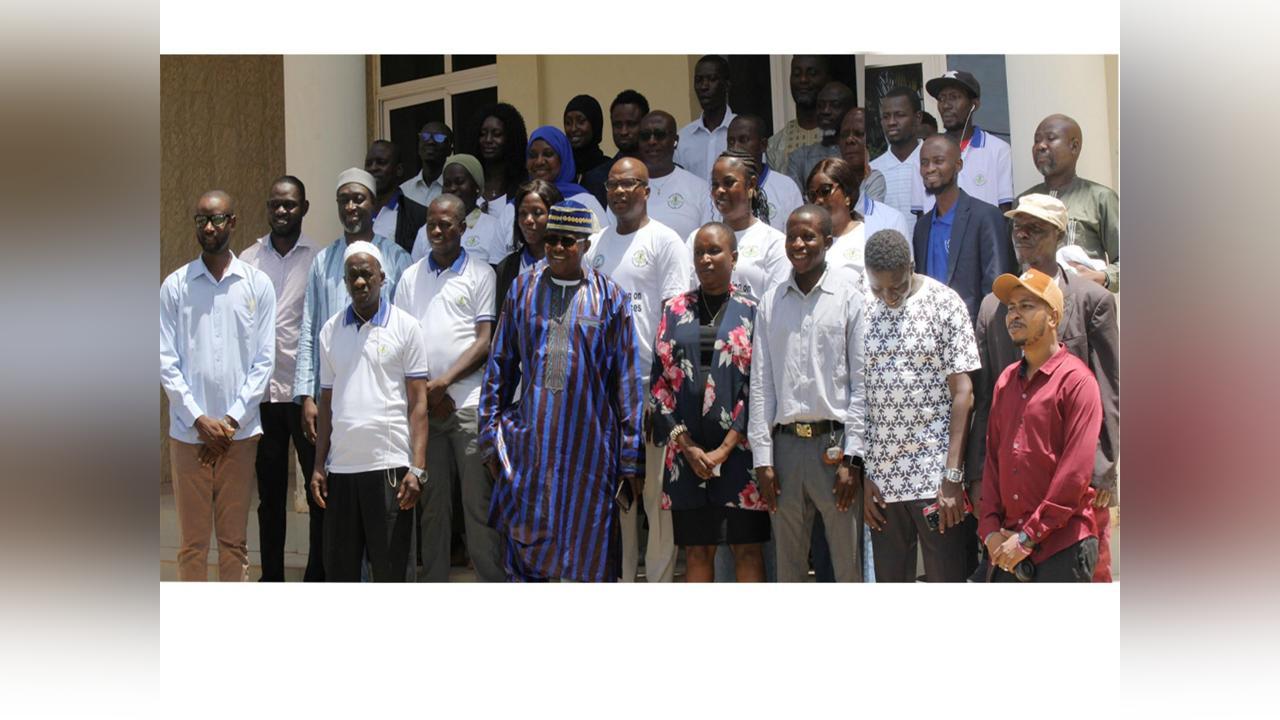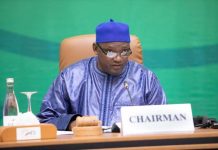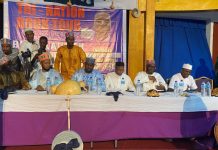Africa-Press – Gambia. The Network of Tax and Financial Reporters (NFTR), in partnership with the Social Security and Housing Finance Corporation (SSHFC), on Thursday, trained dozens of journalists on the operations of the Corporation’s services and its digitalisation drives.
The primary objective of the NFTR Gambia chapter is to ensure there is transparency in tax payments between the government, the business community, and the Tax Authority.
During the training held at the Nana Conference Hall in Bakau, the President of the Network of Finance and Tax Reporters, Abdoulie Nyockeh, welcomed participants and underscored the importance of the training for media practitioners on Social Security and Housing Finance Corporation services.
According to him, the media training is spearheaded and coordinated by the NFTR Gambia Chapter with technical and financial support from SSHFC.
“The essence of the forum is to educate media practitioners on Social Security and Housing Finance Corporation regulations to improve their accurate reporting on social protection and SSHFC mandates. The initiative aims to enhance public awareness about SSHFC’s role in national development and social protection through media sensitisation, to equip journalists with the requisite knowledge to enable them to raise public awareness effectively and efficiently,” he outlined.
He noted that the seminar will benefit both SSHFC and the media in promoting positive awareness and accurate dissemination of information regarding social security issues, to help SSHFC fulfil its mandate.
“Participants are expected to listen to the deliberations, ask questions, and seek clarifications where necessary to clear doubts,” President Nyockeh urged.
“As media practitioners, we value support, involvement, and training on matters that are relevant to our work. It is the reason we value the relationship with the Social Security and Housing Finance Corporation.”
He emphasised that the forum will serve as a vital platform for journalists to meet with SSHFC technical experts and discuss issues of concern to carve a way forward for maintaining accurate dissemination of information.
The President of the Network explained that the idea of establishing the Network emerged after a weeklong intensive continental media engagement training for 72 media practitioners and communicators organised by the Tax Administration Forum Secretariat (ATAF) held in Kigali, Rwanda, in 2019.
“This Network is here to stay, and one of its missions is to complement government efforts in tax education and sensitisation to ensure tax compliance.” He urged both public and private sectors to emulate SSHFC’s bold step in empowering and strengthening the capacity of the media, which he described as fundamental.
The Voice Newspaper’s Editor-in-Chief, Mr. Musa Sheriff, maintained that Social Security is the most media-friendly institution, adding that media houses are powered by advertisement revenue to pay staff.
“This training is long overdue. Such training should be conducted so that people can know the responsibilities of the institution,” he stated.
He suggested that media houses should have a special column to help the institution gain better coverage.
The Editor-in-Chief emphasised the sustainability of the Network, urging the President to task its members to write stories on financial matters. “Gambian media only focuses on politics, neglecting issues that happen at banks. If you look at all the newspapers in this country, only President Adama Barrow, Lawyer Darboe, and Halifa Sallah dominate the papers. Without them, people will not buy the newspapers. As media houses, we should investigate issues,” he said.
Mr. Sheriff pointed out that members should take ownership of the Network, challenging them to report on financial matters.
Representative of the Gambia Press Union, President, Alieu Ceesay, commended the Network for organising this crucial training to better equip journalists on the Corporation’s regulations.
“As the media is evolving, not in terms of function but in form, there is a need to have journalists specialised in certain key areas. Reporting on financial matters is key in what we do, especially in a country that is a tax-based economy. A lot happens behind the scenes that the media needs to know so that the public can be aware,” he argued.
For More News And Analysis About Gambia Follow Africa-Press






